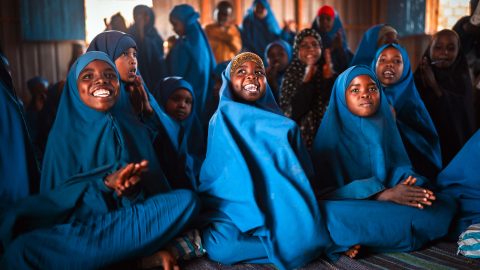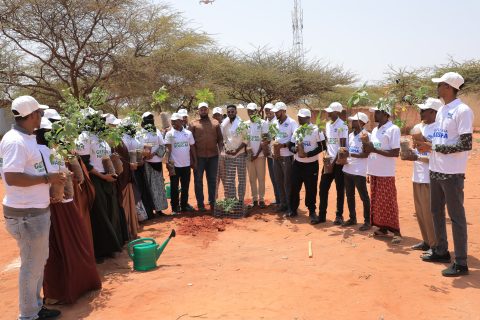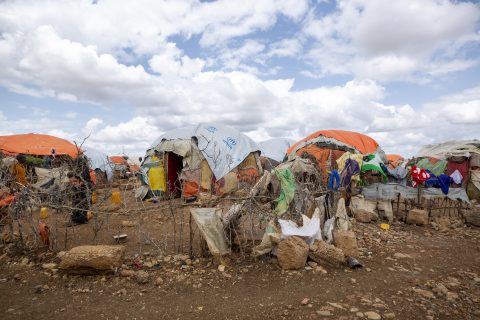“Women in peacebuilding cannot be left behind” – in Somalia, women are key to shaping peace and governance
Despite their deep-rooted roles in local governance and mediation, Somali women remain largely absent from formal politics. But Falis Ahmed, a ‘Peace Mother’ trained by FCA, is changing that—building a network of women leaders and securing an official seat in district government.
FOR DECADES, Somalia’s communities have faced recurring cycles of violent conflict rooted in land disputes, retaliatory killings, resource competition, and political exclusion. Clan-based structures dominate local councils, often sidelining women, youth, and internally displaced persons. This exclusion deepens historical grievances; fuels mistrust between communities and undermines efforts to deliver basic services.
In districts like Abudwak, in central Somalia, these challenges are particularly acute. Weak governance, limited security forces, and deeply entrenched patriarchal norms mean that women are often excluded not only from political decision-making but also from formal reconciliation processes, even though they are among the first to respond to disputes at the community level.
Although Somalia introduced a 30% quota for women in politics, women remain underrepresented at the district level, averaging just 23% of council seats. Those who do gain positions often struggle to influence council decisions meaningfully, as cultural resistance and gender bias continue to restrict their voices. Previous attempts to establish inclusive governance have frequently faltered, either due to lack of local buy-in or because they failed to address the deep social and cultural barriers limiting women’s participation.
The result has been a fragile governance system where women’s potential as mediators, negotiators, and peace activists is underutilized, despite their proven ability to bridge divides, foster reconciliation, and advocate community welfare.
Strengthening women’s leadership in peacebuilding and governance
With support from the Somali Stability Fund (SSF III), Finn Church Aid (FCA) partnered with local governance institutions and women’s associations in Galmudug and Hirshabelle to strengthen women’s leadership in peacebuilding and governance. The initiative aimed to equip women District Councilors and women known as ‘Peace Mothers’ with the skills, confidence, and networks to play an active role in decision-making processes.
‘Peace Mothers’ play a vital role in resolving conflicts and promoting stability. These women, are often trusted for their deep local knowledge and impartiality and have long worked behind the scenes to mediate disputes and build consensus, although their contributions often go unrecognised.
The training covered advocacy, negotiation, and conflict resolution, but also offered intensive well-being and resilience sessions designed to help them manage stress and trauma linked to leadership roles. To ensure lasting impact, peer-to-peer support networks were established in four districts, linking grassroots women’s groups with national advocacy platforms and creating spaces for mentorship and solidarity.
‘We needed knowledge, networks and recognition’
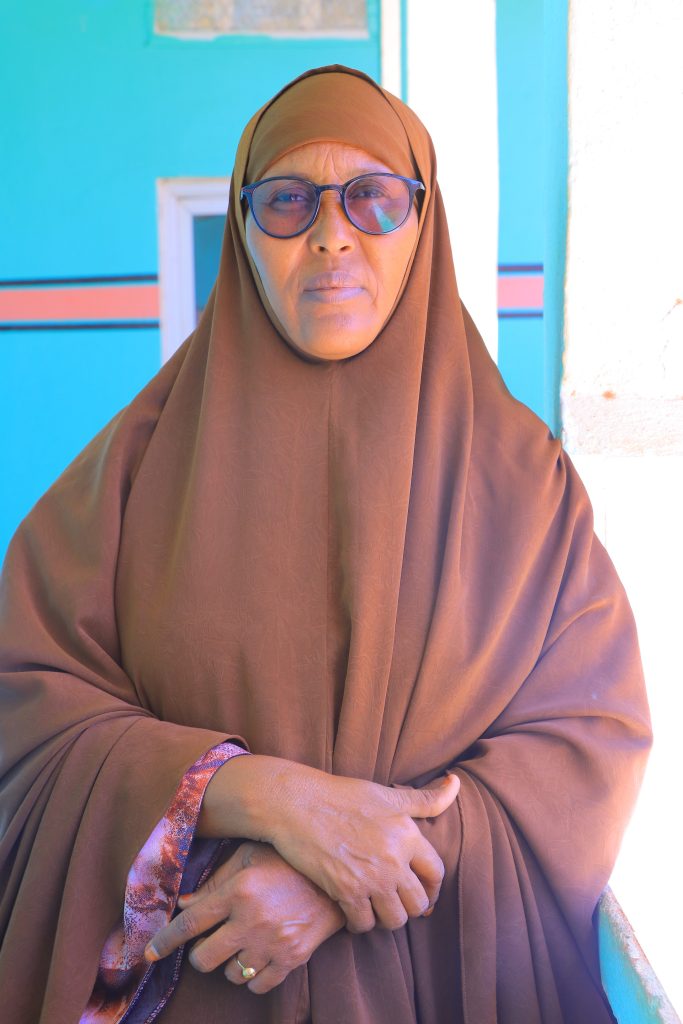
When conflict flares in Abudwaaq, one of the first people the community turns to is Filis Ahmed Barre. As Head of Conflict Resolution and Reconciliation in the district, and a long-standing member of the Women’s Association and the Reconciliation Council, she has become a trusted figure in mediating disputes and promoting peace.
Her path into leadership, however, was not straightforward. Filis began as one of just ten women trying to make a difference in a deeply patriarchal society. “It was clear from the beginning,” she recalls, “that the work ahead of us could not be managed by a small group of women alone. We needed knowledge, networks, and recognition.”
Fillis took part in sessions focused on women’s participation in reconciliation and politics, building confidence to engage with traditional elders, and equipping participants with psychosocial tools to handle the stresses of leadership.
“The facilitators were experienced and energetic,” she explains. “They gave us practical lessons that left us motivated and capable.” With new skills in negotiation, advocacy, and conflict resolution, Filis quickly moved from participant to leader, forming committees of women dedicated to engaging with elders and cascading the training to others.
In Abudwak’s six sub-districts, she gathered 60 women and shared what she had learned from political participation to the unique role of women in peacebuilding. Many of those women are now active members of her organisation, ensuring that the benefits extend far beyond the initial group of trainees.
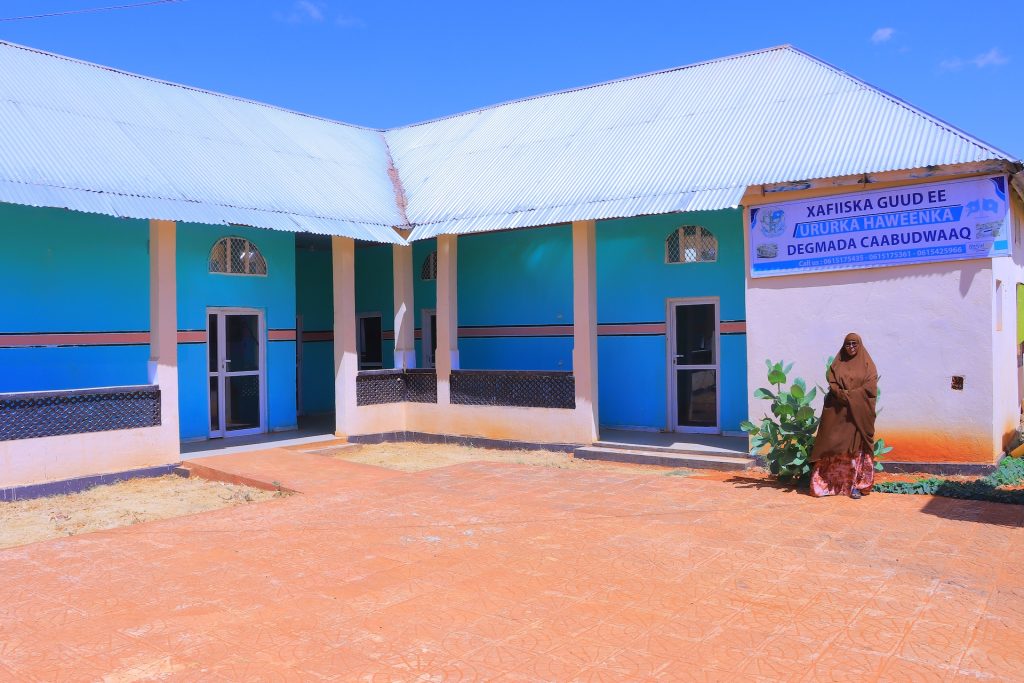
The Women’s Network: a hub for change
One of the most tangible outcomes of the program in Abudwak was the rehabilitation of the Women’s Network (Ururka Haweenka). Previously underutilised, it has been transformed into a safe and vibrant space for women leaders to meet, strategise, and support new candidates for district council.
“The Women’s Network gave us strength,” says Falis. “It allowed us to expand from a small circle to a much larger movement. It is where we gather, where we build each other’s confidence, and where aspiring women leaders find mentorship and encouragement.”
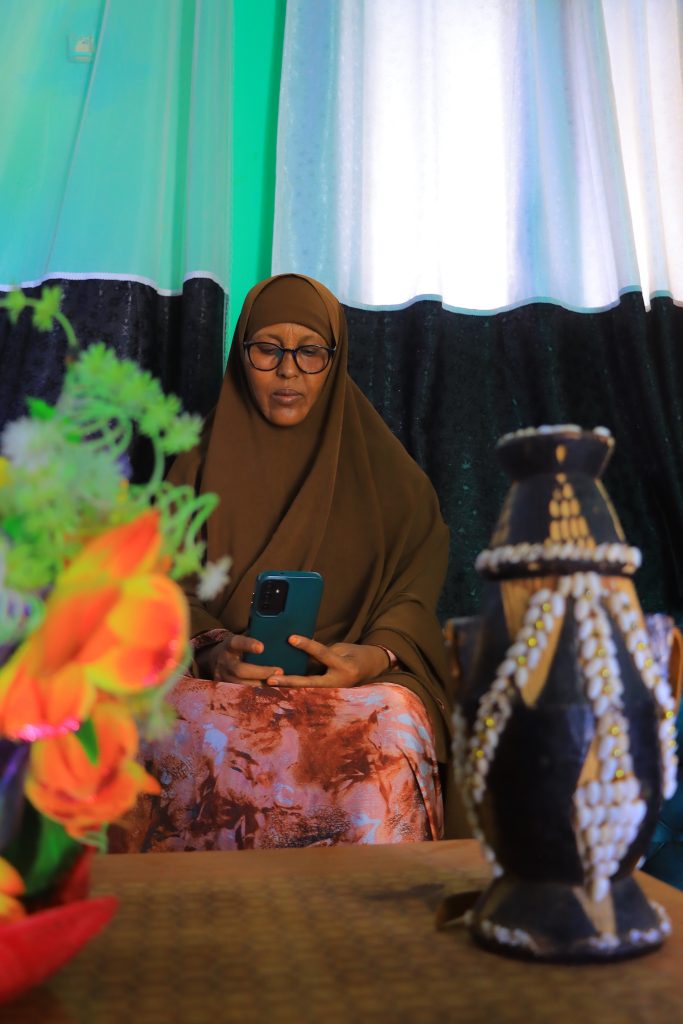
Falis’ new skills and networks also elevated her public role. Once confined to the margins of community life, she is now included in key decision-making bodies. When Abudwak formed a 33-member committee to review voter registration for the one-person-one-vote process, Falia was among those selected. The district administration has since appointed her to an official role, acknowledging her contributions as indispensable.
“Before, we were just women at home without recognition. Today, the community calls on us directly when problems arise, and we are included in decision-making committees. This recognition has given us both a stronger voice and greater responsibility.” Falis explains.
Her work alongside traditional elders has also shifted perceptions. Women’s contributions often in the form of poetry, appeals as mothers or aunts, or encouragement that softens tensions have proven invaluable in reconciliation. Elders, once hesitant, now welcome women’s presence at the table, recognising their ability to bridge divides that others cannot.
Falis acknowledges the change of perception towards women’s participation in dialogue and reconciliation tables “When we join elders in reconciliation, even a simple song or verse from a woman can change the mood. It reminds people of family ties and calms the atmosphere, which is why elders now appreciate our presence.”
Challenges that remain
Despite these achievements, Falis is sincere about the obstacles that persist. Security in Abudwak remains fragile. A shortage of police and peacekeepers means local actors cannot always respond effectively when violence erupts. The risks are compounded by unpaid and demoralised officers, creating an environment of uncertainty.
Cultural barriers are equally rooted. Some men still dismiss women’s contributions in mediation settings, questioning their authority. Traditional gender roles that are framed around domestic responsibilities continue to limit acceptance of women in political life. These challenges, Falis admits, can be discouraging, but they have not deterred her. “Somali culture has not fully accepted women in leadership. Men often push us aside, saying our place is in the home or that women cannot move freely. Even in mediation, some dismiss us and say, ‘If men could not convince us, how can women?’ But we do not give up.” “Even when people doubt us, we continue, because we know the work is too important to abandon.” she says.
A call for support
Falis also stresses the importance of continued support from government and international partners. Using a Somali expression, she describes the distance women feel from central decision-making: “It is like someone calling up from the bottom of a well, asking for help to be pulled out. We need the government to keep watch over us, to support us, and to act quickly when we call. Women in peacebuilding cannot be left behind.”
Her message on the International Day of Peace is a reminder of shared responsibility: “Peace is everyone’s duty. Each of us must take it seriously and contribute to reconciliation in whatever way we can.”
—
Text and photos: Mohamed Eisse/FCA Somalia
